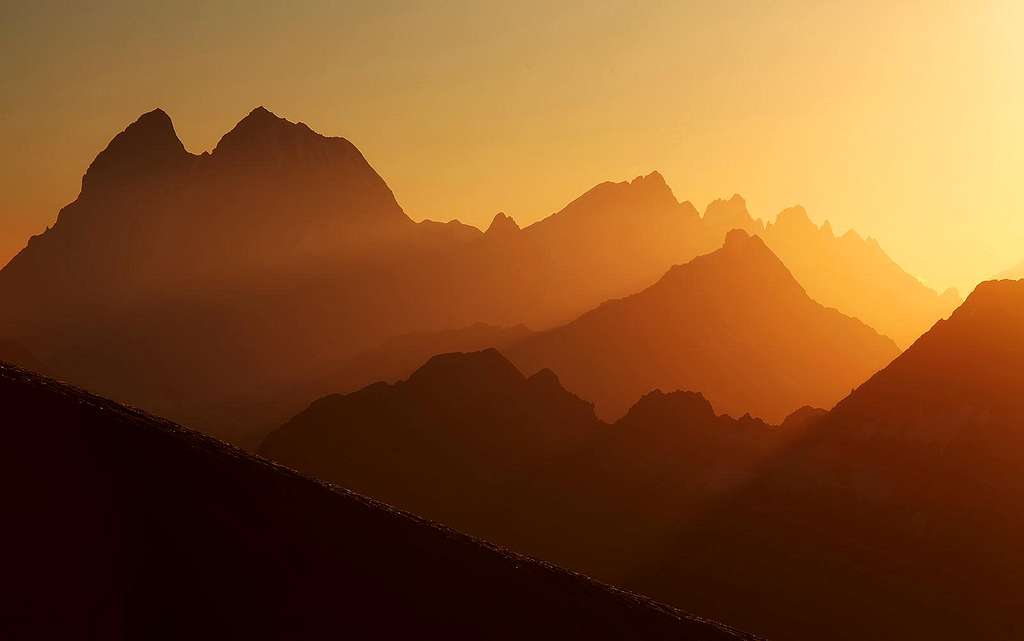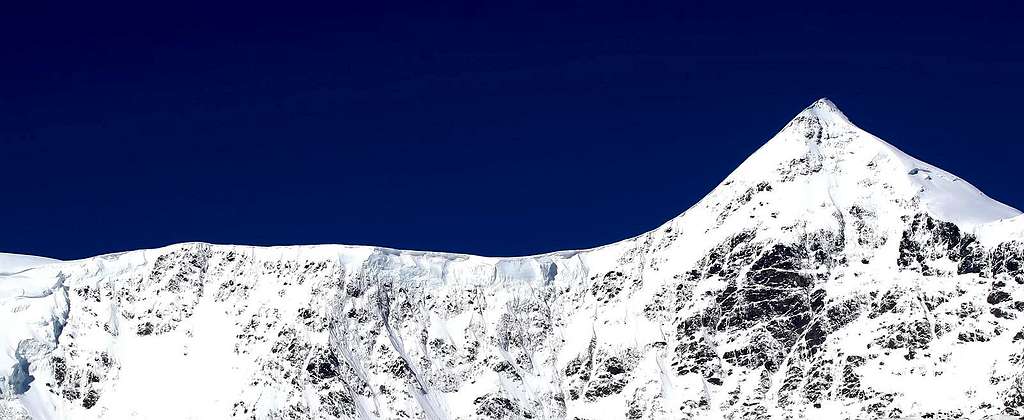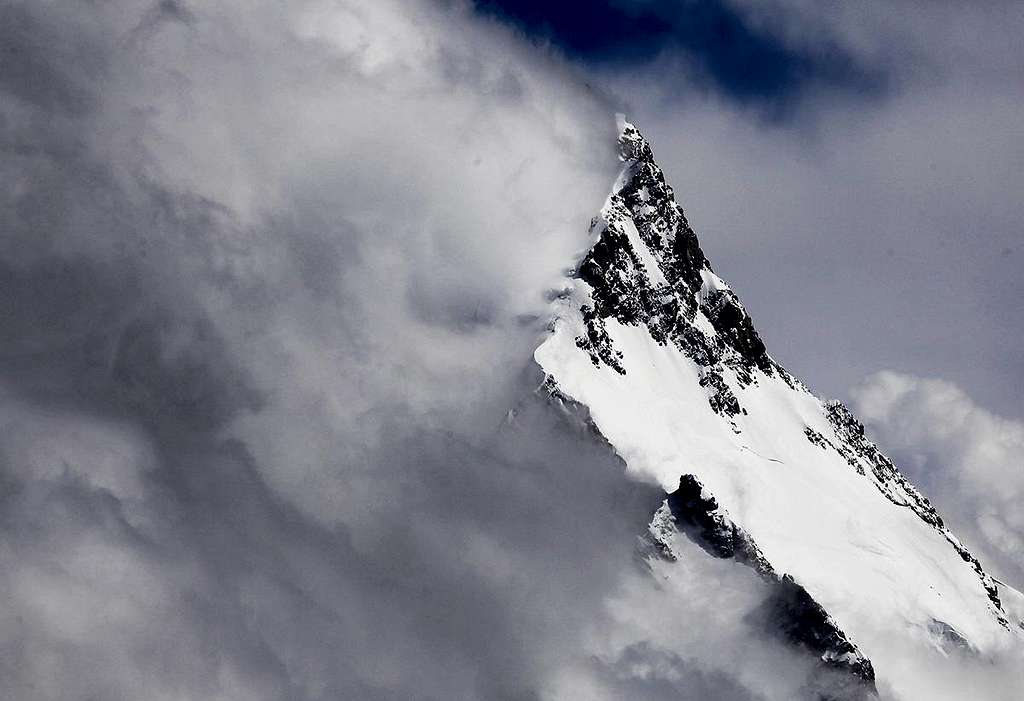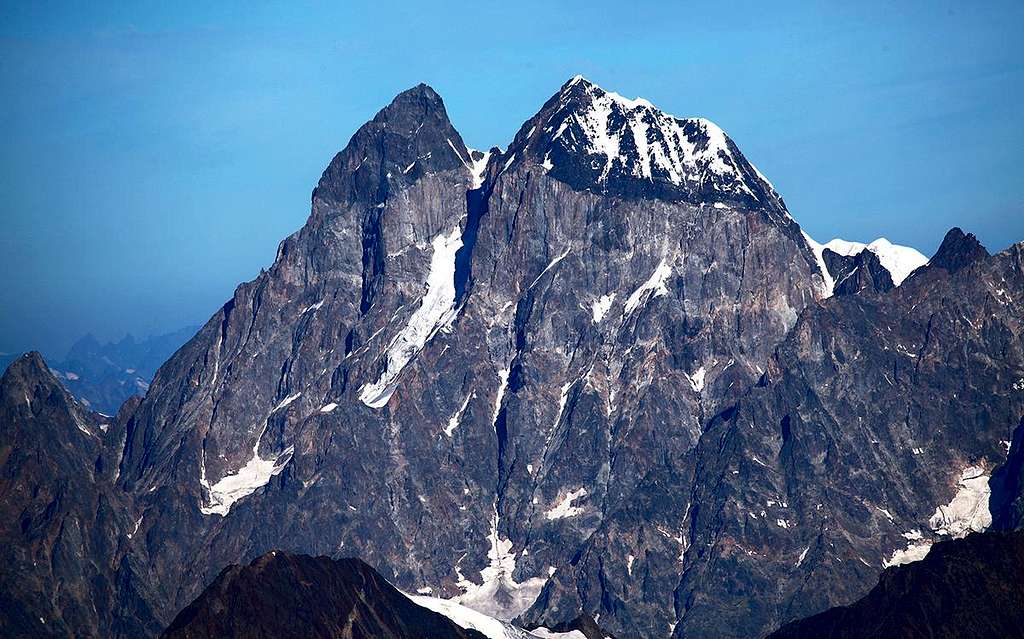Mutual responsibility in mountaineering.
What do we take from mountain climbing? Will the joy of our victory be complete and clean, if we understand that we have passed by someone else's misfortune? Will we be as happy on the summit if a stranger died on our way before reaching it? These questions should be asked at the very beginning of your mountaineering carrier, because the right answer depends on why we go to the mountains - for the sake of our selfish poor vanity and satisfaction of our personal small ambitions, or for the full personal growth and progress, for moral and physical development?
After all, there will be no development if it is not based on the understanding of the principal ethic rules, the observance of which should not be affected either by your social status or nationality - the mountains make all of us equal and give us the opportunity to show our very human qualities, is not this the most valuable thin in mountaineering?

In the mountains, we often deal with situations in which the safety of other people depends, directly or indirectly, on others - for many it is a new, unknown level of responsibility, unusual and inapplicable in normal, urban living conditions. However, one must understand that when climbing mountain peaks, participating in mountain expeditions to remote areas, we expose ourselves to conditions in which, sometimes unexpectedly for ourselves, we got to a different level of responsibility for others, as our own life and safety depend on those who is next to us.
In our days the commercial relations between participants of the mountain ascents are developing along with growing industry of the business in mountaineering, and this makes corrections to the behavior of people in the emergency situations, but many of us just do not understand the specifics and trying to apply in those cases a habitual way of relationships although it is obviously not applicable here.

More than once I heard the fables that, allegedly, mutual support and help were inherent in the "Old Soviet mountaineering school," but in Western culture there is no idea of such mutual assistance. This is a complete nonsense and nationalist ideas - because from the old immemorial times, in maritime affairs directly related to Western culture, there was an immutable international law - to come for help at the sea for all those in need, go off the route, change course and do everything possible to save the suffering people who got into an accident. This is a matter of survival in the sea, which also, like the mountains, is an element of nature which is beyond the control of man.
Entering into the relationship with the elements of the mountains, we find ourselves in conditions when our life and safety are dependent on those people who accidentally are close to us - and there will be no other assistance in case of an accident. It does not matter if you are a client or a guide, your own or someone else's group is in trouble. In that situation there is no difference, because help is needed immediately.

Unfortunately, often come gloomy news about accidents in the mountains, in which the severity of the consequences is seriously aggravated by improper actions, or the complete indifference of the people who were in close proximity and were capable of coming to the rescue at a difficult moment. But, who did not accept this responsibility and did not give their assistance timely.
A few examples. Two guides roped together fell down while climbing Elbrus, after which their clients continued their route to the summit and successfully completed their ascent. The life of the two people in this case had lesser value than their own personal ambitions and desire to get to the top. How much does such a victory costs? Or when descending from Ushba, a person died of fatigue in only five meters from the tent, into which his partner has already entered and fell asleep, because was not less tired. Or left by the group, climber died of hypothermia, after he fell into crevasse on the glacier and the group went down to get the help of the rescue team thinking themselves not competent to render any help in this case. I will not even touch on a whole set of the stories about Everest, where people die on the trail, literally a step from indifferently passing by people - everyone has their own sherpas, their own oxygen, everyone spent his own money on the expedition - why stop there where somebody dies?

So, if we accept this as inevitability, if we explain our behavior by the fact that we paid money and everything else is outside of our responsibility, if we pass by those who are in urgent need, thinking that in the accident only rescuers should help - at a difficult moment we will be left without help in the situation when every minute can save a life, and any, even the most insignificant interference of other people can pass the trouble away. In the extreme conditions of the mountains, when we are placing ourselves in the potentially dangerous conditions, and the trouble can come to any of us at any moment, the level of responsibility for each other increases many times, and on how much we care about the safety of the people around us, our own safety depends. So from this comes the first rule of our behavior in the mountains, time-tested and time proved and which finally became a law - help other people in need, and in the moment you need it - help will come to you.
External Links
More articles on the mountain climbing from MSC AlexClimb

